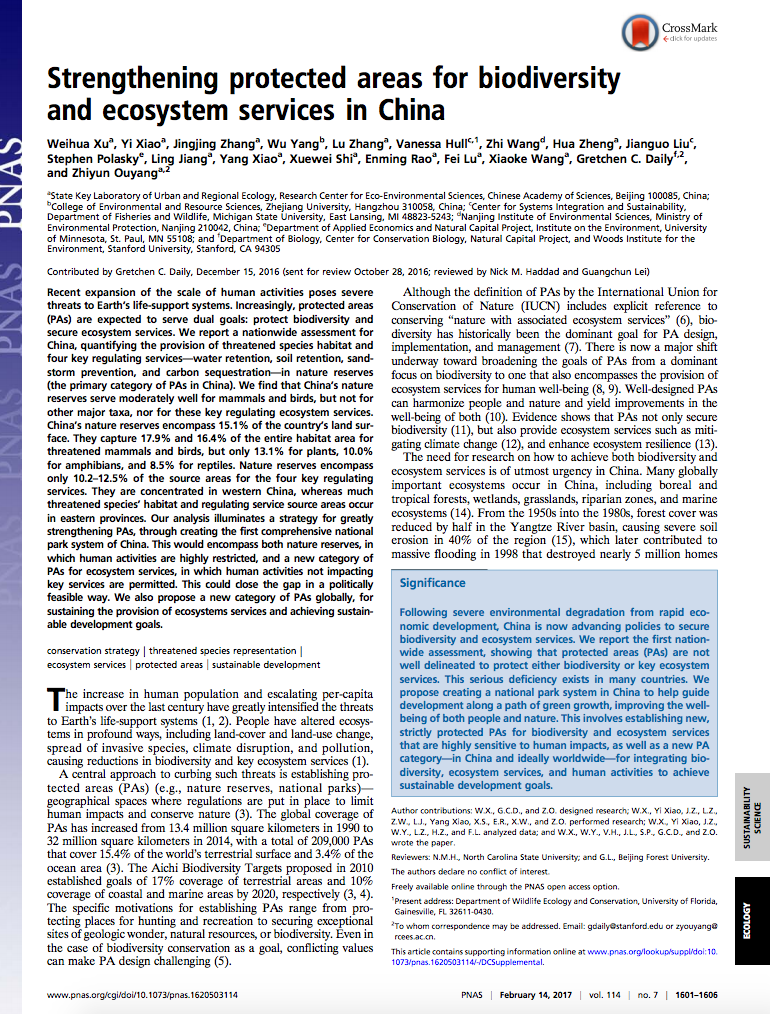Resource information
Recent expansion of the scale of human activities poses severe threats to Earth’s life-support systems. Increasingly, protected areas (PAs) are expected to serve dual goals: protect biodiversity and secure ecosystem services. We report a nationwide assessment for China, quantifying the provision of threatened species habitat and four key regulating services—water retention, soil retention, sandstorm prevention, and carbon sequestration—in nature reserves (the primary category of PAs in China). We find that China’s nature reserves serve moderately well for mammals and birds, but not for other major taxa, nor for these key regulating ecosystem services. China’s nature reserves encompass 15.1% of the country’s land surface. They capture 17.9% and 16.4% of the entire habitat area for threatened mammals and birds, but only 13.1% for plants, 10.0% for amphibians, and 8.5% for reptiles. Nature reserves encompass only 10.2–12.5% of the source areas for the four key regulating services. They are concentrated in western China, whereas much threatened species’ habitat and regulating service source areas occur in eastern provinces. Our analysis illuminates a strategy for greatly strengthening PAs, through creating the first comprehensive national park system of China. This would encompass both nature reserves, in which human activities are highly restricted, and a new category of PAs for ecosystem services, in which human activities not impacting key services are permitted. This could close the gap in a politically feasible way. We also propose a new category of PAs globally, for sustaining the provision of ecosystems services and achieving sustainable development goals.


